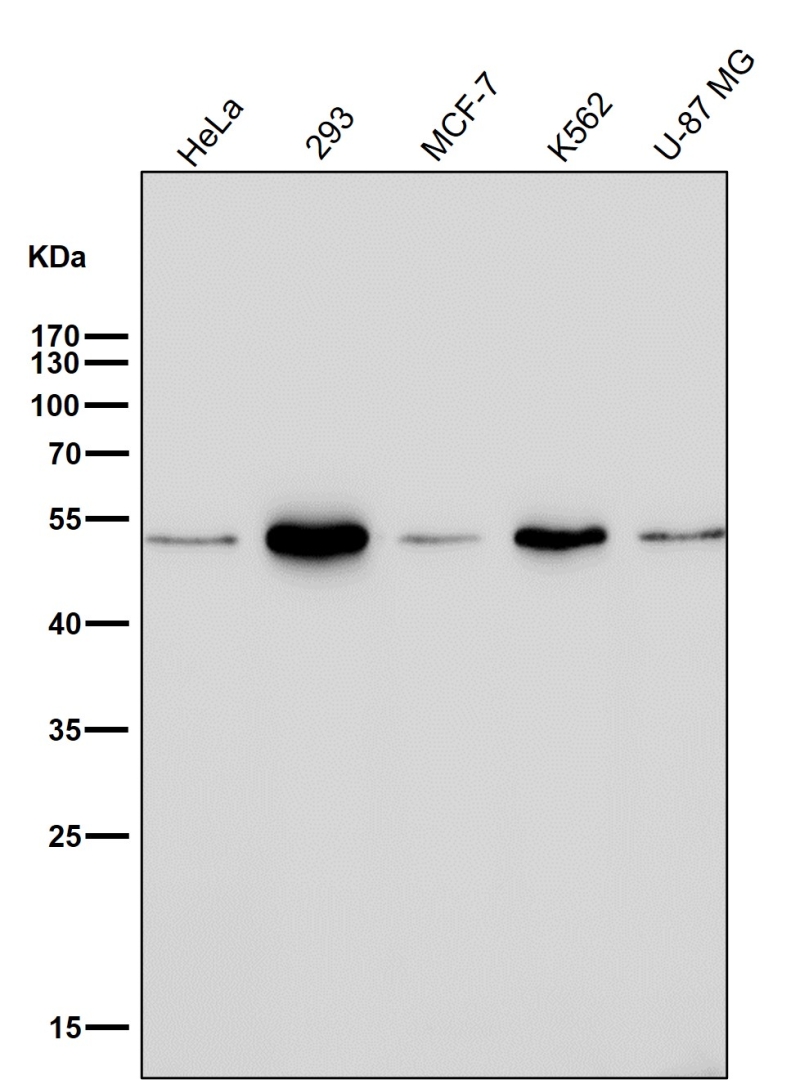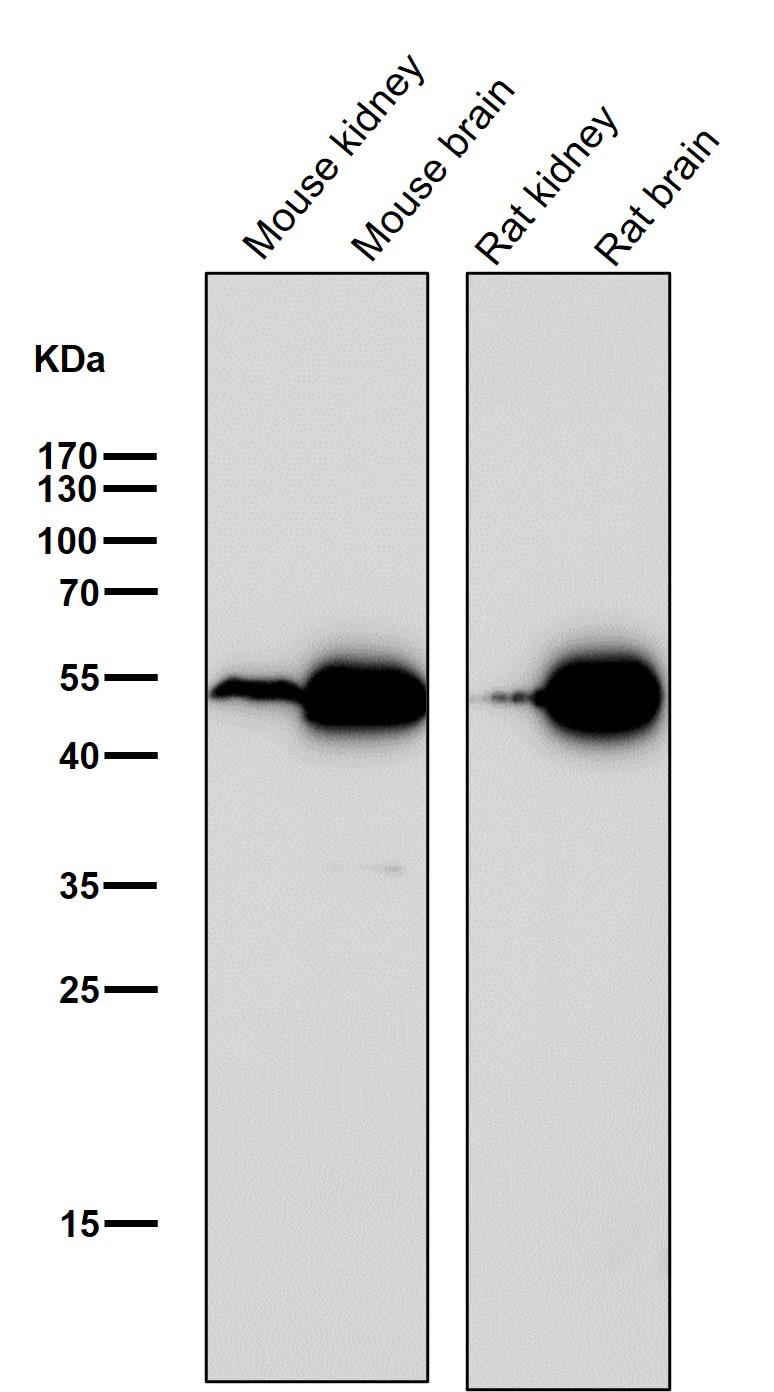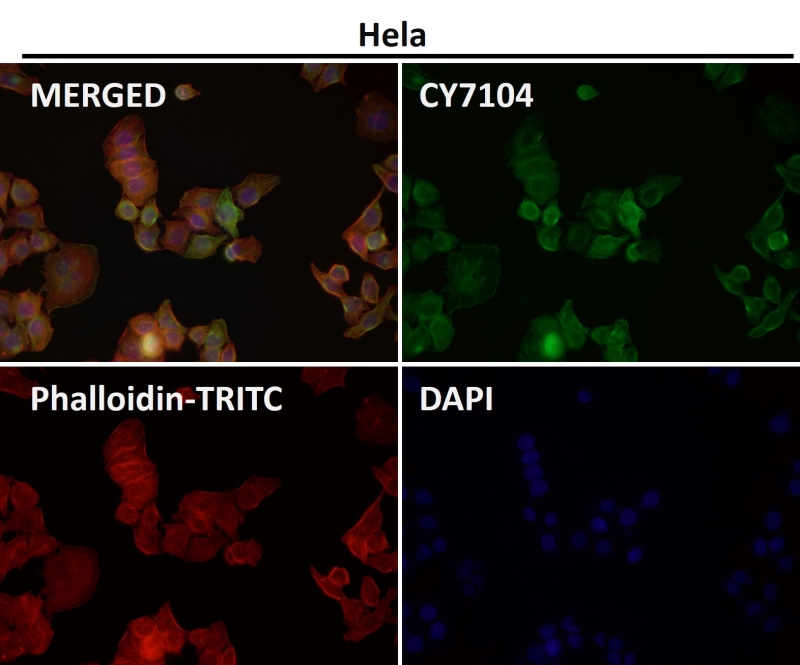



| WB | 咨询技术 | Human,Mouse,Rat |
| IF | 咨询技术 | Human,Mouse,Rat |
| IHC | 咨询技术 | Human,Mouse,Rat |
| ICC | 1/50-1/200 | Human,Mouse,Rat |
| FCM | 咨询技术 | Human,Mouse,Rat |
| Elisa | 咨询技术 | Human,Mouse,Rat |
| Aliases | Efnb2; ephrin B2; EPLG5; Htk L; HTK ligand; HTK-L; HTKL; LERK5;;Ephrin B2 |
| WB Predicted band size | Calculated MW: 37 kDa ; Observed MW: 50 kDa |
| Host/Isotype | Rabbit IgG |
| Antibody Type | Primary antibody |
| Storage | Store at 4°C short term. Aliquot and store at -20°C long term. Avoid freeze/thaw cycles. |
| Species Reactivity | Human,Mouse,Rat |
| Immunogen | A synthesized peptide derived from human Ephrin B2 |
| Formulation | Purified antibody in PBS with 0.05% sodium azide,0.05% BSA and 50% glycerol. |
+ +
以下是3篇涉及EphrinB2抗体的代表性文献摘要,供参考:
1. **"EphrinB2 Antibody Inhibits Tumor Angiogenesis"**
*作者:Wang et al. (2017)*
摘要:研究开发了一种靶向EphrinB2的单克隆抗体,证明其通过阻断EphrinB2/EphB4信号通路抑制肿瘤血管生成,并在小鼠模型中显著减少乳腺癌生长和转移。
2. **"Targeting EphrinB2 with a Therapeutic Antibody Suppresses Ocular Neovascularization"**
*作者:Zhang et al. (2020)*
摘要:该文献报道了一种人源化EphrinB2抗体,在糖尿病视网膜病变模型中有效抑制病理性血管增生,机制涉及阻断VEGF与EphrinB2的协同作用,为眼科疾病治疗提供新策略。
3. **"Anti-EphrinB2 Antibody Enhances Chemotherapy Efficacy in Glioblastoma"**
*作者:Chen et al. (2019)*
摘要:研究发现EphrinB2抗体可增强替莫唑胺对胶质母细胞瘤的疗效,通过抑制肿瘤干细胞自我更新和促进凋亡,为联合治疗提供实验依据。
注:以上为简化示例,实际文献需通过PubMed等数据库验证。如需具体文献,建议检索关键词"EphrinB2 antibody therapeutic"或结合研究领域(如肿瘤、血管疾病)进一步筛选。
EphrinB2 antibodies are tools used to study the EphrinB2 protein, a key member of the Eph receptor tyrosine kinase signaling pathway. EphrinB2 is a transmembrane ligand that binds to EphB receptors, mediating bidirectional signaling critical for cell-cell communication. It plays essential roles in embryonic development, angiogenesis, and tissue patterning. Notably, EphrinB2 is a marker for arterial endothelial cells and regulates vascular morphogenesis by interacting with EphB4 receptors in veins. Dysregulation of EphrinB2-EphB4 signaling is implicated in pathological conditions, including cancer, cardiovascular diseases, and neurological disorders.
EphrinB2 antibodies are widely utilized in research to detect protein _expression (via Western blotting, immunofluorescence, or immunohistochemistry) and to modulate EphrinB2 function in experimental models. They help elucidate mechanisms in tumor angiogenesis, metastasis, and vascular remodeling. Some antibodies block ligand-receptor interactions, enabling functional studies, while others serve as diagnostic markers. Challenges remain in ensuring antibody specificity due to structural similarities within the Ephrin family. Recent studies explore therapeutic potential, such as targeting EphrinB2 in anti-angiogenic cancer therapies or tissue regeneration. However, translating these findings requires addressing off-target effects and optimizing delivery strategies.
×